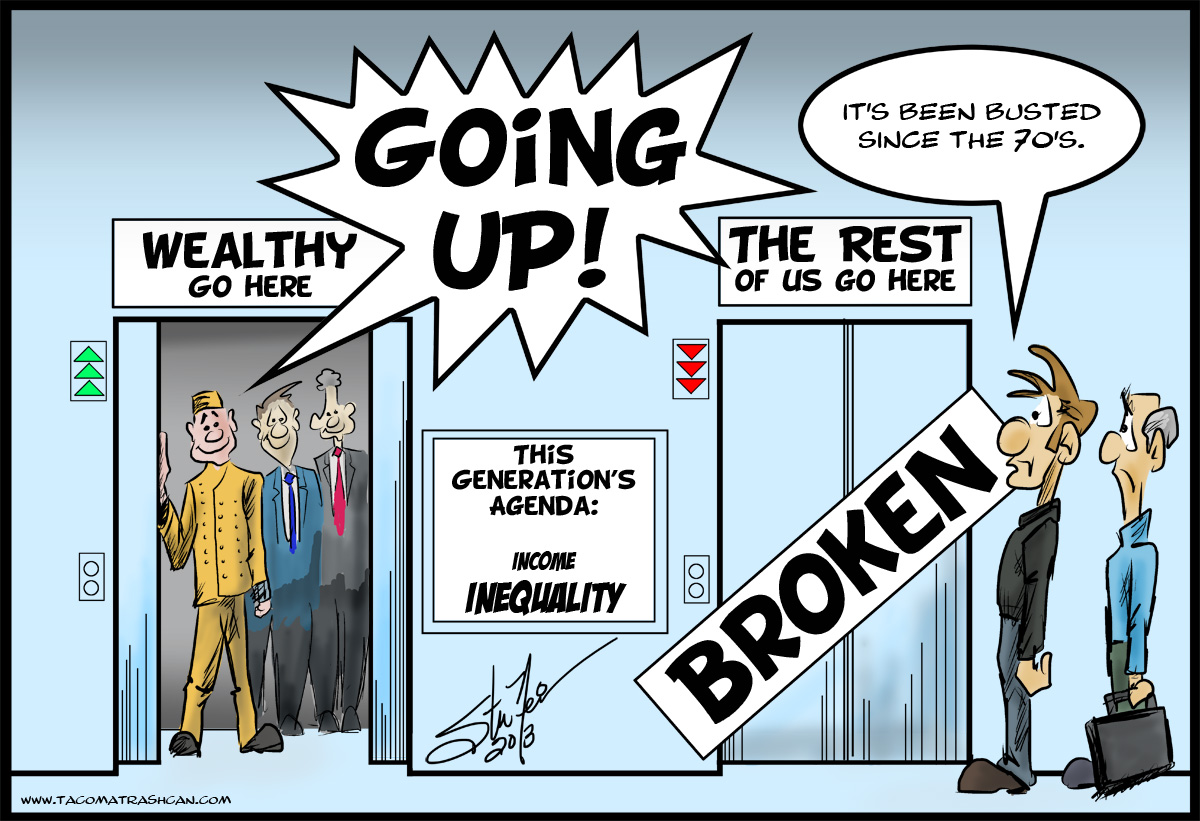Personally think the biggest two issues of the next 50-100 years are probably (a) drought and (b) inequality, with a potential (c) choice of “automating every job possible to chase profits, thus creating a world where no one can really work.” That last one might be a bit further out.
As for inequality, that’s a big one — and it’s getting worse — and, uh, turns out it might be self-sustaining. Check out this, via Stanford:
“It creates a great deal of dissonance to think ‘I’m disadvantaged in this situation and it’s totally unfair that I am,’” says Willer, who conducted the research with several professors, including the paper’s lead author, Jojanneke van der Toorn, a professor of psychology at Leiden University, in the Netherlands. “People tend to reduce dissonance they feel, so they convince themselves that their situation is legitimate and acceptable. If you don’t feel like you can change your circumstances, rationalizing them may feel like the only thing to do.”
OK. And that leads to this:
The sense of dependency is precisely what propels those who feel powerless to see the status quo as legitimate. “The logic behind this,” van der Toorn explains, “is that people who feel powerless want to feel that the world makes sense and that their disadvantage is not unfair. Therefore, they legitimate the inequality that they don’t benefit from.”
This is a little bit like when someone bitches about work and someone else says “Well, that’s the way things are!” Instead of listening to the other person or engaging in an actual, thoughtful conversation with them … you basically legitimatize the idea that “Yea, work sucks! Then we die!”
Rather than engaging, you accept … and when you accept, you kind of give power back to the idea. (Because you just accepted it, so in a way you admitted it’s right.)
One of the core tenets of what they’re saying here is that “people who feel powerless often turn to bad support systems rather than ones that could re-empower them.” Yes. Phrased another way: drugs. Abusive relationships. Etc. Those all emanate from a place of initially feeling powerless.
Here’s this too, which is depressing:
There’s a lesson here for business managers, too. Since people who feel powerless have many reasons to avoid conflict, the onus is on those in power to make sure they are treating people with fairness and respect — and for managers to find ways to get a true picture of their own strengths and weaknesses through the eyes of their workers. Managers would be better off, Willer says, “to empower employees in order to get accurate feedback on employees’ working conditions and compensation.”
That last sentence should make you weep. It’s 100 percent true, of course, but managers don’t care about empowering employees for accurate feedback. Managers care about deliverables and hitting marks. What you’re describing in that pull quote above is “employee engagement,” right? Very few people actually understand what that is or why it matters. Most people wanna follow process, do their work, get their atta-boys or promotions now and again, and go home to their families and friends. Most people don’t want to be engaged, because the way we’ve always engaged people is such a farce and so forced. People want organic relationships and experiences, not $50 gift cards. But most managers don’t get that.
Turns out the whole thing is tied to social science. Cool, right?
